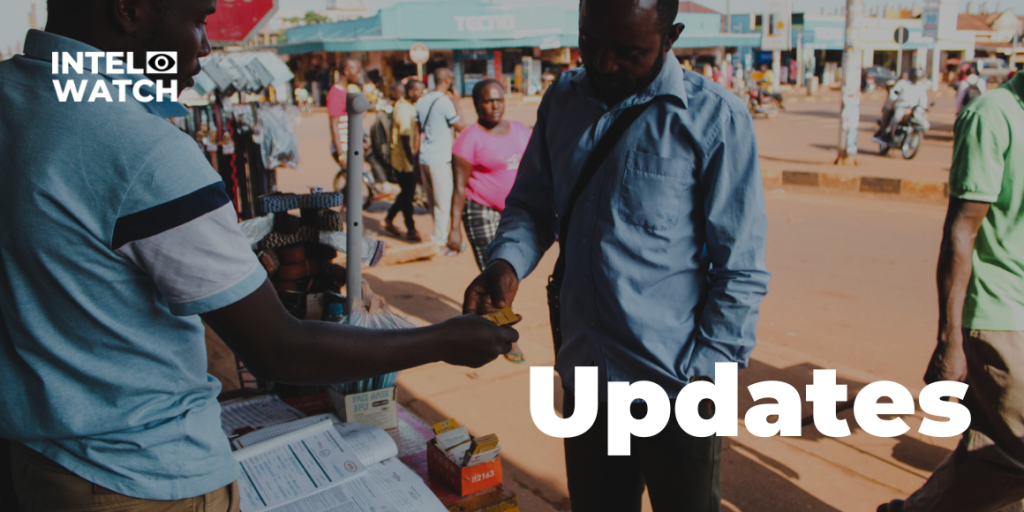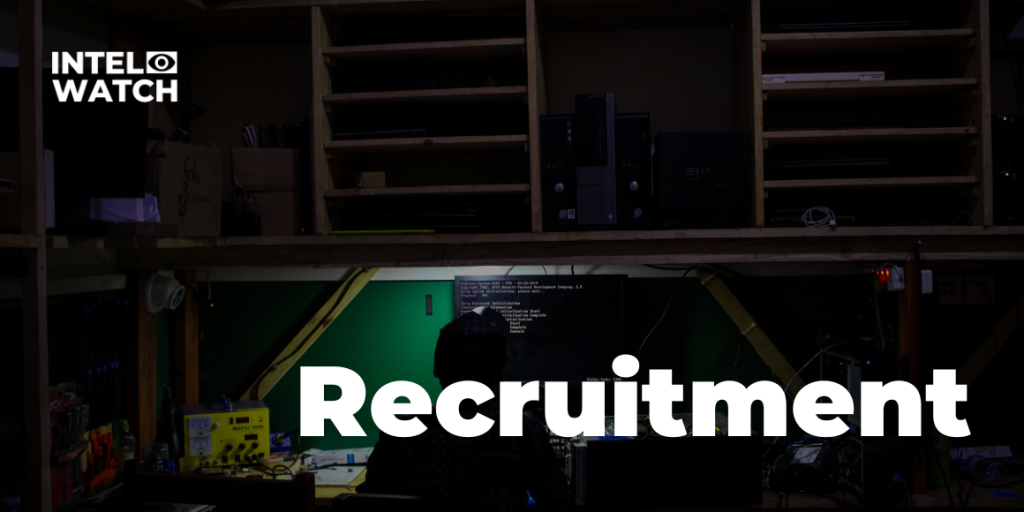Op-ed | State Intelligence mess: How the SA spy watchdog’s teeth have been pulled
This piece by Jane Duncan was first published by Daily Maverick.
State intelligence is in a catastrophic mess and has been for some time. As a result, South Africa is poorer and more unstable.
When Parliament opens for 2022, one of its tasks is to select the new Inspector-General of Intelligence. This person oversees the activities of the Crime Intelligence Division of the South African Police Service (SAPS), the State Security Agency (SSA) and the Defence Intelligence Division of the South African National Defence Force (SANDF).
On the surface, this may appear to be a routine appointment of an individual to a fairly obscure public institution. But in reality, it is of importance to everyone. A poor appointment could cost South Africa very dearly, as abuses in the spy agencies could go undetected.
State intelligence is in a catastrophic mess and has been for some time. As a result, South Africa is both poorer and more unstable. These agencies have given criminals practically a free pass and have even themselves become criminal.
In a decisive move to clean up the mess in the SSA, President Cyril Ramaphosa absorbed the agency into the Presidency and recently designated Minister in the Presidency Mondli Gungubele to assume political responsibility for the control and direction of the SSA. This decision makes the role of the Inspector-General even more important.
The president may have had the best of intentions in swallowing the SSA, namely to clean up the agency once and for all under his watch. However, in making this move, the president has strengthened one form of intelligence oversight only — namely executive, or more specifically, presidential oversight.
There is little indication that this new arrangement has been future-proofed to prevent it from being abused after his presidency. To that extent, it is a high-risk move that could backfire as it relies almost completely on the balance of forces in the ANC remaining as they are. No one can say with certainty that they will.
Failure to strengthen intelligence oversight as a whole is injudicious and downright dangerous. If South Africa lands up with another president like Jacob Zuma, then the SSA will be in even more trouble than it was, as its centralisation will be a gift for another toxic president.
Of course, it could be argued that the SSA was abused under the previous arrangement where it accounted to a minister; but centralisation could turbocharge the abuse. The dangers are amplified by the fact that no period of review of this decision has been announced; neither has a sunset clause, limiting its duration.
It is therefore of the utmost importance that other forms of oversight are strengthened. Two of the most important of these are the Inspector-General of Intelligence and the Joint Standing Committee on Intelligence (JSCI).
The two bodies rely on each other. A strong Inspector-General is a precondition for a strong JSCI.
The JSCI is meant to oversee the activities of the various spy agencies on behalf of Parliament. However, it lacks the capabilities to investigate the spy agencies. It cannot access the identities of intelligence agents or information about methods that may reveal their identities.
For that, it relies on the Inspector-General, who hears complaints from the public about the agencies, and issues them with annual certificates of compliance or non-compliance with the Constitution, the law and intelligence policies. At the same time, the Inspector-General relies on the JSCI to hold non-compliant agencies to account on the basis of its investigations.
In the first session of Parliament, the JSCI needs to select a new Inspector-General to replace the incumbent, Setlhomamaru Dintwe. The committee is busy with the process, having advertised for candidates, but it still needs to hold hearings for the shortlisted candidates.
The public needs to watch the selection process very carefully. To do so, however, the JSCI will need to follow an open and transparent selection process. At a minimum, candidates should be shortlisted in public, their CVs released publicly, and they should be interviewed in public.
Civil society had to battle with the previous JSCI to ensure an open process when Dintwe was selected in 2016. The ANC was intent on ramming through an unpopular and inappropriate candidate who was more committed to secrecy than transparency. Civil society played an important role in preventing that appointment, leading to Dintwe being appointed instead.
There are early signs that the current JSCI will be more transparent than its predecessor. But the committee still has to explain fully the process it intends to follow, and it should do so as soon as possible.
However, getting the right person for the job is not the only challenge. It is necessary to conduct a stocktaking of this entity, to examine just how effective a spy watchdog it is. In reality, many of its teeth have been pulled, and so far, the political class has found it pretty useful to keep things that way.
The Inspector-General does not have the resources or the independence to do the job properly. Parliament and the government have known about these problems since 2006 and failed to address them.
Since this date, three reports have argued for the Inspector-General to be given an independent status, but this recommendation has not been implemented. These problems are likely to frustrate the efforts of even the best person for the job.
Defenders of Ramaphosa’s decision to centralise the SSA in the Presidency argue that he had no other choice in the wake of the violence of July 2021. However, had he acted decisively on the Inspector-General’s problems, that decision may not have been necessary, as the rot in these agencies would have surfaced much sooner and been acted upon.
Dintwe even went to court in 2018 to challenge his office’s lack of powers, independence and resources. He did so when his security clearance was withdrawn by the then director-general of the SSA, Arthur Fraser, in what appeared to be an attempt to frustrate the Inspector-General’s work. Yet, nearly four years later, these problems still remain unaddressed.
The most serious problem the Inspector-General faces is that the spy agencies it oversees largely ignore its findings as they have the status of recommendations. The incumbent does not have access to the kinds of remedial measures that the Public Protector has, to ensure implementation. Certificate upon certificate has pointed to abuses in the spy agencies, but there has been limited to no remedial action.
The JSCI is aware of this problem, as it pointed out in its most recent annual report. The problem has led to a situation where, in the words of the committee, “The implementation rate of [Inspector General’s] recommendations was two percent and in some cases zero percent.”
Then there is the fact that the powers of the Inspector-General can only be exercised by the individual occupying the post, not the office. No provision has been made for a Deputy Inspector-General to exercise these powers in their absence. This means that if the position is vacant, nothing can happen.
The position has been vacant in the past, and in fact was vacant for 22 months before Dintwe took over. According to Dintwe’s testimony to the Zondo Commission, some of the most serious abuses of the spy agencies occurred during the time when there was no Inspector-General.
As he noted, it has not been in the interests of the public that such a vital oversight post remains vacant for extended periods. But it was most certainly in the interests of corrupt and politically connected spies.
Large numbers of vacancies remain unfilled in the office as the Inspector-General does not have appointing powers: only the minister of state security does. Referring to this problem at the Zondo Commission, Dintwe said:
“It has never happened since I got there [the filling of vacancies]. People have gone all the time and some have resigned and so forth. No one — there is no one, not even a single person who was appointed for the past four years that I was in this office, which makes perfect sense. I mean if I was a Minister myself, I would not appoint people to go to an office which were [pestering me]. I mean, as an institution.”
The Inspector-General also told the Zondo Commission that he had developed capacity plans many times. However, the office remains undercapacitated, because it is a spending centre of the SSA, which controls its budgets.
This perverse situation leads to the office never receiving the resources it needs and makes it dependent on the very agency it is meant to oversee. While the office’s budget is being ringfenced, it is the SSA and not Parliament that decides on how much to ringfence.
Rightfully, the Inspector-General’s budget should be based on a percentage of the budgets of the agencies it oversees. This means that its size will either increase or decrease based on the size of the agencies.
The Inspector-General’s independence could also be upgraded significantly by designating it a Schedule One entity under the Public Finance Management Act. This will give the office more financial independence and elevate it to the same status as the Chapter Nine institutions. However, what is most likely is that capacity will need to be built in the office for it to attain this status.
The office is also dependent on the SSA for its IT systems. This means that the SSA has access to the Inspector-General’s documents and can snoop on investigations about itself.
While it is a criminal offence for the agencies overseen by the Inspector-General to deny it information, the agencies have devised clever ways to frustrate access to information. Dintwe explained:
“So yes, of course, there will be that continuous resistance. They are very clever; we call it managed access because they know it is a criminal offence. So you will request this document three times and by the fourth time when you want to cross the street and go to Garsfontein police station [to lay a charge against them] they will give that document to yourself.”
In contrast, the Australian Inspector-General for Intelligence and Security, on which the South African office is partly modelled, operates its own IT systems. It also has full, unmediated access to the records of the agencies it oversees. If the Australian Inspector-General wants documents, they just go on to the agencies’ servers and pull the documents out.
All these structural weaknesses in the oversight system are now being imported into the new arrangement, which compounds the potential for abuse.
The absorption of the SSA into the Presidency, practically overnight and with no public debate, shows that where there is political will, the government can move with speed to make structural changes to intelligence.
Whether Ramaphosa will act to give the spy watchdog teeth — something that previous presidents have refused to do — will be a test of his intentions. If he fails the test, then South Africa may well pay an even higher price than it has for captured and corrupt intelligence.
The centralisation of the SSA in the Presidency, in the absence of meaningful checks and balances, may also become a decision that he may, in time, come to regret. DM
Jane Duncan is a professor in the Department of Communication and Media, University of Johannesburg. She is the author of Stopping the Spies: Constructing and Resisting the Surveillance State in South Africa (Wits University Press, 2018). This piece is written in her personal capacity.


